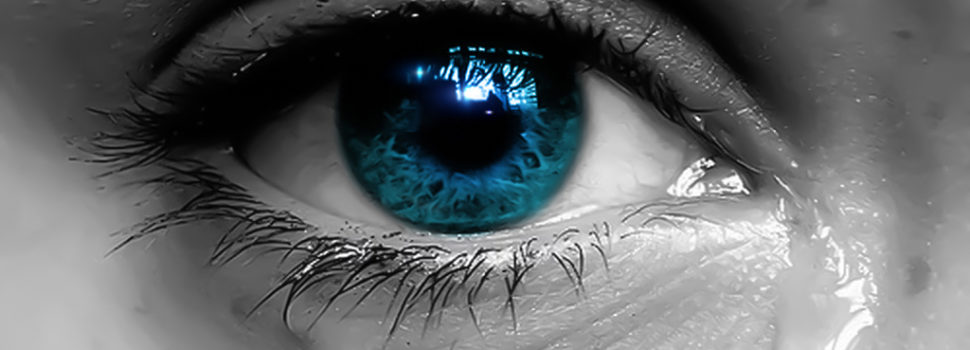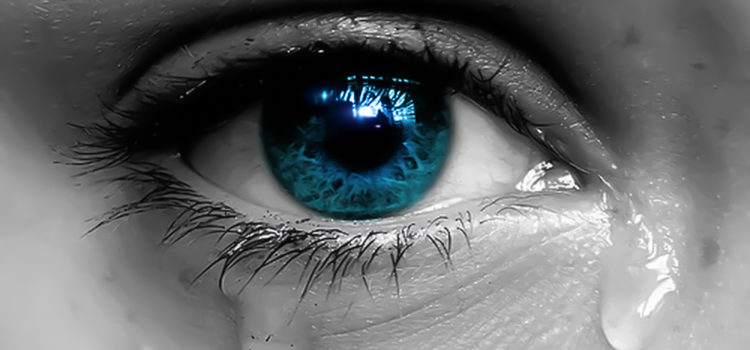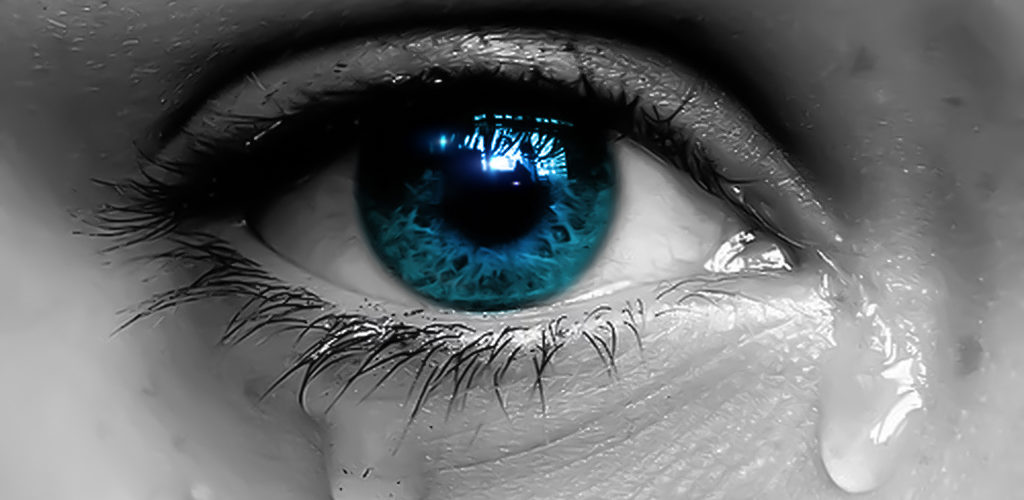


Tears, sometimes you just need a great cry. Tears of joy. Tears of laughter. Even tears of pain, sorrow or loss. Crying is a reaction remedy for any emotional overload. Natural human crying is “a complex secretomotor phenomenon characterized by the shedding of tears from the lacrimal apparatus, without any irritation of the ocular structures”, according to all available information. That basically means, it feels good and relieving to shed salted water from your eyes.
Tears have some very vital components. First is water, you know, for moisture. Tears also have natural oils in them for lubrication. Oil makes water wetter, if that makes any sense. They have mucus to ensure they spread evenly and special proteins and antibodies, that keep infection in check. A magical cocktail of soothing as I like to think of them. Your body makes this easily, naturally, and constantly. If that’s the case why are my eyes so dry all the time?
Dry eyes could mean something in your body is off. Are your eyes giving you a gritty feel? Do you constantly feel like there’s something in your eye, like an eyelash? Got itching, redness, blurry vision or light sensitivity? especially at work? You could have an issue in your tear-flow system. Don’t panic, odds are its something simple like your air conditioner, fan, or heater that are causing your dry eyes
Dry Eye Causes
But what if it isn’t any of those things? First, we will want to rule out some of the other simple explanations. Menopause and the natural human aging will cause your eyes to dry up. So will certain antihistamines and conditions that don’t allow your eyelid to fully shut. Even things like our blood pressure medications or viagra can cause an imbalance in your tears. Then there are more complex issues like Sjogren’s syndrome, rheumatoid arthritis, and collagen vascular diseases. These diseases affect your eye’s tear making capabilities.
None of those? It could be the bright lights, dry air, and computer screens of your office. The office environment is a prime place to dry out your tear film. There are a lot of reasons your office environment is causing your dry eyes. Staring at your computer for long periods of time will cause you to blink less often. Couple that with the glare of your computer and overhead fluorescent lights and that dry office air, it’s no wonder your eyes are red, dry, irritated. It’s your office causing your dry eyes…
Easy Natural Solutions
Fortunately, this isn’t a very complex issue, and we can solve it pretty easily. First, take breaks from your computer. Use the 20-20-20 rule. This is something experts recommend not just for dry eyes but your overall eyesight as well. They say, every 20 mins take a 20-second break and look at something 20 feet away. In all honesty, we should all be doing this, even from just our phones.
Next, ditch the contacts and go with the glasses look. The glasses will act as a shield protecting your eyes from wind as well as dry air. The glasses will also slow down the tear evaporation process. Water, add more water daily. It’s just common sense and helps a multitude of other issues. Lastly, adjust the lighting in your office. Cut down the over headlights, and add a few soft LED lamps. Or try one of those cool himalayan pink salt lamps that look so cool I just want to get one.
Hit Them With Chemicals
As much as we bash our chemical use in today’s world, they do work. Just look at my lawn and fish tank. Chemicals can solve all life’s problems, like dry eyes. With your dry eyes being a mild issue you can get an artificial tear solutions. You can use these to supplement natural tears. Artificial tear solutions are a great solution and don’t have preservatives or additives that can cause more eye irritation.
If those don’t help you can get a small bit of silicon implanted in your tear ducts to conserve tears. It sounds a bit extreme but keeping your natural tears is a good way to reduce your dry eye issues. The gel-like plugs are inserted in your tear ducts and you can easily remove them to let the tears out when needed. Your optometrist can also prescribe an omega-3 fatty acid teardrop nutritional supplement to increase your tear production.
Lastly try prescription eye drops or ointments, warm compresses and lid massage, or eyelid cleaners. This will reduce the inflammation around the eyes and boost tear production. I like to call this the kitchen sink approach.










